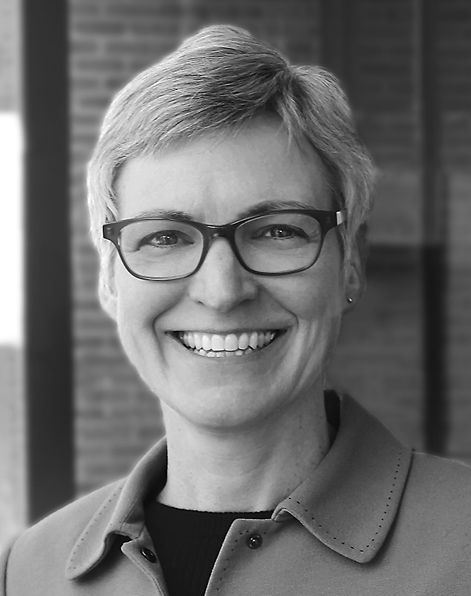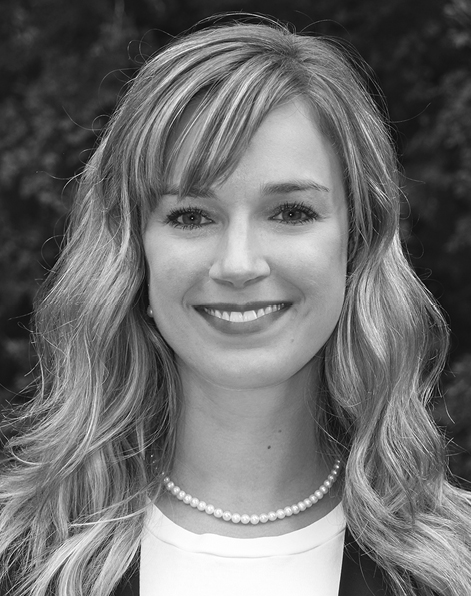This article originally appeared in The Bar Examiner print edition, September 2016 (Vol. 85, No. 3), pp 63–66.
By Kellie R. Early and Jessica Glad
Character and Fitness
Substance abuse; disregard of traffic laws; neglect of financial responsibilities; reapplication permitted
In re Application of Mikulin, 145 Ohio St. 3d 305, 49 N.E.3d 287
The Supreme Court of Ohio denied bar admission to an applicant with a considerable history of drug abuse, traffic violations, and default judgments, but held that he was permitted to reapply for admission at a later date.
Matthew Paul Mikulin graduated from Case Western Reserve University School of Law in May 2015 and applied to take the July 2015 Ohio bar exam. The admissions committee of the Cleveland Metropolitan Bar Association expressed some concern about Mikulin’s history of drug abuse, traffic violations, and default judgments, but nevertheless recommended that his character and fitness be approved. The Board of Commissioners on Character and Fitness subsequently exercised its sua sponte authority to further investigate Mikulin’s character, fitness, and moral qualifications.
The board found that Mikulin began to drink alcohol and smoke marijuana on a regular basis in high school. In college, he progressed to abusing prescription opiates until those drugs became too expensive, at which time he started snorting heroin. He was academically dismissed from college in 2005.
Mikulin reported that he hit bottom in May 2006 after he lost his job for walking off his shift. He called his father, who took him to enroll in an outpatient treatment program. He began attending Narcotics Anonymous and stopped using heroin and opiates, but admitted that he continued to drink alcohol. Mikulin relapsed and started shooting heroin following the sudden death of his younger brother.
The board described Mikulin’s life from 2006 to approximately 2012 as a “roller coaster” of drug use followed by periods of treatment and sobriety. Mikulin entered a drug-court program after two arrests for possession of heroin in November 2008. Despite several relapses, Mikulin graduated from the drug-court program in 2010 and from Cleveland State University in 2012. After using heroin again for two weeks in March 2011, Mikulin subsequently completed a five-day detox program. Shortly after starting law school, Mikulin entered into a three-year contract with the Ohio Lawyers Assistance Program and complied with its terms. Mikulin graduated from law school in May 2015.
Mikulin testified at his admission hearing in May 2015 that he had not used heroin since 2011 and that he had stopped drinking in August 2012.
The board “acknowledged that if Mikulin’s heroin addiction were his only issue, it might be inclined to recommend approval of his character and fitness given that he had been sober for approximately three and a half years.” However, Mikulin also had a history of 11 traffic convictions between 2004 and 2013. Furthermore, Mikulin had failed to address multiple debts he had incurred that had fallen into collections and resulted in default judgments. The board placed particular emphasis on Mikulin’s “irresponsible decision to ignore his debts, noting that he failed to make any payments or contact his creditors to discuss payment plans—even when he was gainfully employed.”
The board credited Mikulin for the difficult steps he had taken to recover from his heroin addiction; however, it was concerned by the combination of Mikulin’s lengthy history of traffic violations and his financial irresponsibility. The board recommended that Mikulin’s application be disapproved but that he be permitted to apply for the July 2016 bar examination.
On review, the Ohio Supreme Court adopted the board’s findings of fact and recommendations, holding that Mikulin had failed to demonstrate that he possessed the requisite character, fitness, and moral qualifications to be admitted to the bar. The Court specifically concluded that Mikulin’s “disregard of traffic laws and his neglect of his financial responsibilities present sufficient grounds for disapproving his application.” The Court encouraged Mikulin to “responsibly address his financial obligations, obey traffic laws, and continue to abstain from substance abuse.” Finally, the Court instructed Mikulin that he may reapply for admission in July 2016 “by filing a new application to take the bar examination and establishing that he possesses the requisite character, fitness, and moral qualifications for admission to the practice of law in Ohio.”
Miscellaneous
Requiring an out-of-state attorney to maintain an office in the state; Privileges and Immunities Clause
Schoenefeld v. Schneiderman, 821 F.3d 273 (2d Cir. 2016)
(This case was reported in three earlier issues of the Bar Examiner [Vol. 80, No. 1, March 2011 at https://thebarexaminer.ncbex.org/wp-content/uploads/PDFs/800111_Litigation.pdf; Vol. 81, No. 1, March 2012 at https://thebarexaminer.ncbex.org/wp-content/uploads/PDFs/81012_be_LitigationUpdate.pdf; and Vol. 83, No. 2, June 2014 at https://thebarexaminer.ncbex.org/wp-content/uploads/PDFs/830214-LitigationUpdate.pdf]. The following summarizes the latest developments in the case.)
This case is an appeal from a judgment of the United States District Court for the Northern District of New York declaring unconstitutional New York Judiciary Law § 470 on the grounds that it violates the Privileges and Immunities Clause, U. S. Const. art. IV, § 2. As detailed in the summary in the March 2011 Bar Examiner, Ekaterina Schoenefeld is licensed to practice law in New York, New Jersey, and California, and she is a resident of New Jersey and maintains an office in New Jersey but not in New York. Section 470 requires any nonresident member of the New York bar to maintain an office in the state for the transaction of law business. The Second Circuit previously certified a question to the New York Court of Appeals to determine the minimum requirements of § 470. (See the summary in the March 2012 Bar Examiner.) The Court of Appeals held that § 470 requires a physical office, and cannot be satisfied by a designated agent for service of process. The U.S. District Court subsequently entered summary judgment in favor of Schoenefeld and declared § 470 unconstitutional. This appeal followed.
The Second Circuit explained that the Privileges and Immunities Clause prevents states from discriminating against citizens of other states, but it does not preclude states “from ever distinguishing between citizens and noncitizens.” To demonstrate a violation of the Privileges and Immunities Clause, a plaintiff must show that “the state has burdened nonresident activity that is ‘sufficiently basic to the livelihood of the Nation as to fall within the purview of the Privileges and Immunities Clause.’” The state must then demonstrate that there are substantial reasons for the discrimination and that “the degree of discrimination bears a sufficiently close relation to such reasons.”
The court went on to discuss the recent holding by the United States Supreme Court in McBurney v. Young, 133 S. Ct. 1709 (2013), which it noted was not available when the district court ruled in this case. It explained that McBurney clarified that a plaintiff must offer proof of a “protectionist purpose” on the part of the state to burden nonresidents in order to establish the sort of discrimination prohibited by the Privileges and Immunities Clause. Establishing that a law has a disparate effect on nonresidents, in the absence of a protectionist purpose by the state, is insufficient.
The court next considered Schoenefeld’s claim that § 470 violates the Privileges and Immunities Clause on its face and as applied. The parties agreed that § 470 imposes a requirement on nonresident attorneys that does not apply to resident attorneys because residents may use their homes as their offices. Not every facial distinction between residents and nonresidents, however, indicates a protectionist purpose. The court reviewed the legislative history of § 470 and found that it was enacted for the nonprotectionist purpose of ensuring that every New York attorney, whether a resident or not, could practice in the state by establishing a physical presence in the state. The predecessor law to § 470, Chapter 43, was enacted in 1862 to reverse a court ruling that barred a New York attorney who had moved to New Jersey from practicing in New York on the grounds that it would be difficult to serve process on the attorney. At that time, service could be made on an attorney at his office, or if the office was not open, at the attorney’s home. The legislature reacted by enacting Chapter 43 to make clear that a nonresident attorney could still practice as long as he maintained an office in the state, and Chapter 43 further designated such office as an accepted site for service of process. Subsequently, the office requirement and office service authorization provisions of Chapter 43 were divided, with the office service authorization being codified at § 60 of the New York Code of Civil Procedure and the office requirement at § 470. Although state law and court rules now authorize service by various means in addition to home and office, and “§ 470’s office requirement is now largely vestigial as a means for ensuring service,” that doesn’t change the fact that it was originally enacted for a nonprotectionist purpose.
Schoenefeld argued that Chapter 43 must be viewed in its historical context and considered an exception to what was a general ban on nonresident attorneys. The court rejected this argument because “Schoenefeld has not been burdened by that general ban, which was invalidated in 1979” and “she [has] offered no proof that the office requirement was enacted to further the general ban so as to admit an inference of protectionist intent.” Moreover, neither the recodifications of the office requirement in 1877 and 1909 nor New York’s failure to repeal § 470 implies a protectionist purpose. After the New York Court of Appeals struck down the general ban on nonresident attorneys, the legislature amended several laws to conform to that holding. Schoenefeld offered no evidence “that anyone identified a need to repeal § 470 as part of that process, much less that the legislature thereafter refused to do so for the protectionist purpose of favoring resident attorneys.” A state’s failure to amend or repeal a law does not demonstrate that the law is being maintained for a protectionist purpose. Without a showing of a protectionist purpose, “a state need not demonstrate that its laws are narrowly tailored to a legitimate purpose.”
The court further found that the effects of § 470 do not create an inference of protectionist purpose. While nonresident attorneys have to lease offices when resident attorneys may use their homes as offices, this fact does not unduly burden the nonresidents. The court pointed out that the expense of a New York office is likely less than that of a New York home. That Schoenefeld must incur the cost of a New York office in addition to her New Jersey home and office is “not a product of New York law.” The Privileges and Immunities Clause does not guarantee that it will be as easy for nonresidents to comply with a law as it is for residents, only that the law will not differentiate for a protectionist purpose. The court concluded that effects of § 470 manifest no protectionist intent, and are no different from the effects of a law “that on its face requires all attorneys to maintain a physical presence in New York.” The court observed that the Tenth Circuit and Third Circuit have upheld similar statutes against Privileges and Immunities challenges. That the statutes at issue in those circuits did not facially classify on the basis of residence, while § 470 does, was deemed irrelevant by the court. “What Schoenefeld in fact seeks through this action is not to practice law in New York on the same conditions as a resident attorney who by virtue of home (or home and office) maintains a physical presence in the state. Rather, she seeks to practice law on different terms, specifically, without maintaining a physical presence in the state.” The court reversed the district court decision invalidating § 470 and remanded the case with instructions to deny Schoenefeld’s motion for summary judgment and award judgment in favor of the defendants.
Judge Hall wrote a dissenting opinion arguing that § 470 discriminates on its face against nonresident attorneys and that the State has failed to provide a substantial justification for that discrimination. Hall wrote that “the majority injects an entirely novel proposition into our Privileges and Immunities Clause jurisprudence: that a State’s explicit discrimination against nonresidents with regard to a fundamental right is constitutionally unobjectionable unless the nonresident makes out a prima facie case of discriminatory intent. Such a holding reverses the State’s burden of demonstrating that it has a substantial interest justifying the discrimination and that the means chosen bear a close and substantial relation to that interest.” Hall further argued that, even under the majority’s “reformulation” of the law, Schoenefeld has established that § 470 has a protectionist purpose and the State has failed to show a reason for the discrimination or that the degree of discrimination bears a substantial relationship to the State’s objective.

Kellie R. Early is Chief Operating Officer for the National Conference of Bar Examiners.

Jessica Glad is Staff Attorney for the National Conference of Bar Examiners.
Contact us to request a pdf file of the original article as it appeared in the print edition.







